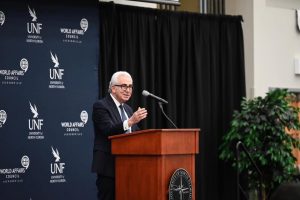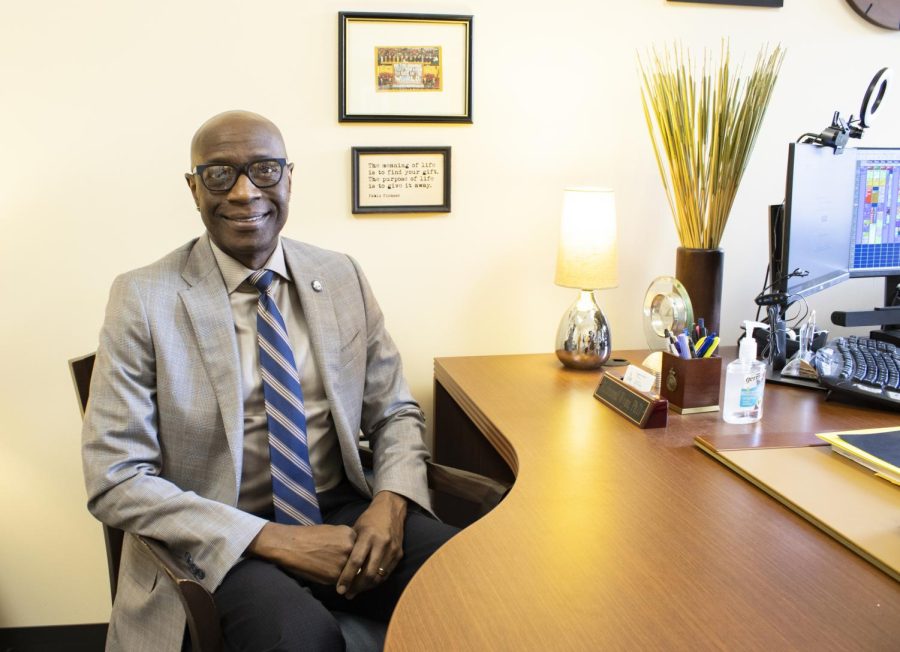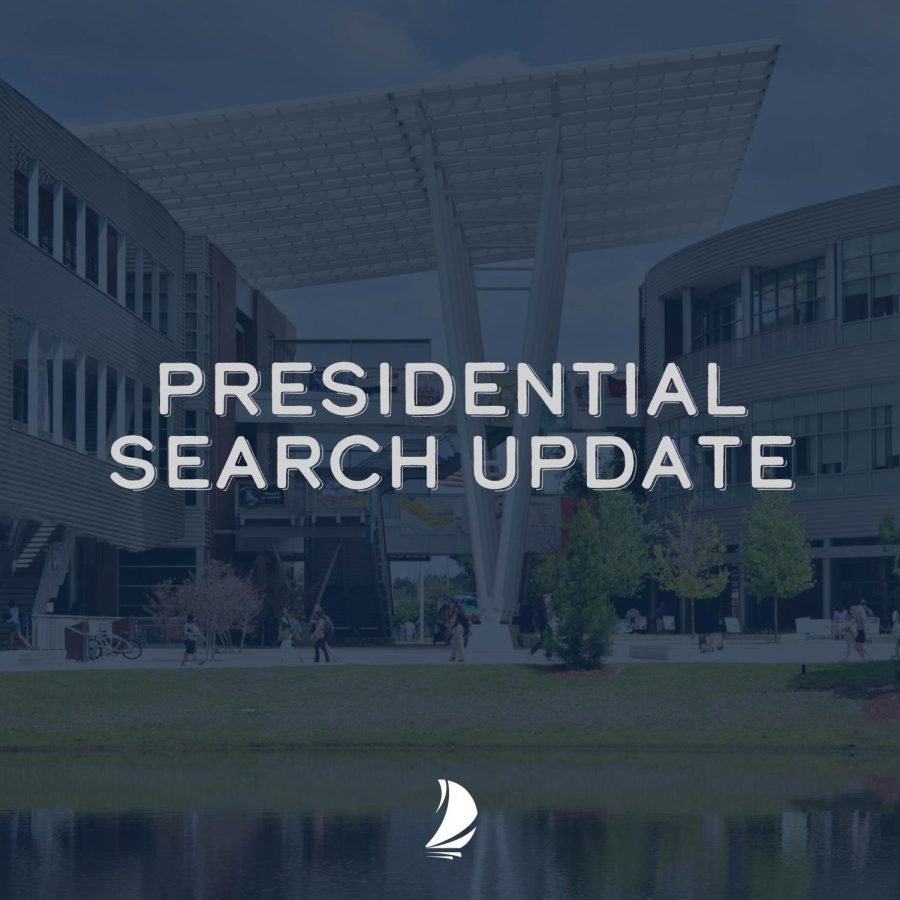A background in foreign cultures through the study abroad programs may help students who often realize that being hired is a greater challenge now than it has ever been since the Great Depression.
Besides the changing economy, other factors such as experience abroad play a role in student’s competitiveness in the workforce and his or her ability to adapt to a new changing environment, said Dr. Timothy Robinson, director of the International Center.
The demand for more cosmopolitan students is mainly caused by connectivity of the world.
“What happens in the world effects us in Jacksonville,” said Robinson. “You can see it now with swine flu or with SARS, for example.”
Depending on what students want to do, experience abroad makes them much more attractive to certain employers and thus increases their competitiveness in the workforce, said Robinson.
Robin-Renee Rutenberg, a student of economics and international business, found her trip to Ecuador last May a “unique opportunity.” As an economics major, she was able to incorporate her prior knowledge of the bargaining system and the relative value of money in it, said Rutenberg.
Besides applying what she learned in class, Rutenberg gained a different world perspective – something that Robinson believed many American students who come from the region lack due to not traveling abroad.
Robinson explained that the U.S. does not have such close connections to other countries, other than Canada or Mexico, as the European countries do.
“But we cannot exist on our own,” he said. “We are part of the world and the better we know [the world], the better we can take our proper role in it.”
According to Robinson, there are two sides to the relationship between the experience abroad and students’ ability to find a job. Studying abroad has shown to foster “their ability to adapt to ambiguity of cultures while enabling the use of foreign language” in an actual setting where it is naturally spoken.
“Student surveys show that they realize there are different viewpoints than their own,” he said. “People dress differently and speak different languages.
Language skills may be required for certain jobs, which make bilingual students more attractive to the potential employer, said Robinson.
Some of our programs require the ability speak a foreign language, since students attend a foreign university and receive credit hours for their performance in the program, he said.
According to the Institute of International Education, the number of international students has been steadily increasing, reaching 555 students or circa 3.5 percent of the total enrolled at UNF in 2007 and 2008. This figure is consistent with the overall nation’s average and represents an increase of 7 percent from the previous year.
Some of the most popular locations of study abroad and faculty-led programs are Italy, Spain, France or China and Japan, the Division of Student Affairs said in their printed catalog.
Transition to a more international campus is heavily supported by UNF’s president John Delaney and Dr. Gonzalez, vice president for Student and International Affairs who is a significant force in providing awards and grants for faculty leaders participating in study abroad programs.
Students who feel they cannot afford traveling abroad may find numerous sources that would finance their journey.
“There are so many scholarships and financial aids that when I went to Ecuador I literally only paid for food and souvenirs,” said Rutenberg.
According to the International Update brochure, the Honors Program, the Division Academic Affairs and the International Council all promote the global nature of our campus either by providing funds, teaching classes or developing more opportunities for students and faculty to experience foreign cultures.
Image courtesy of UNF.






















